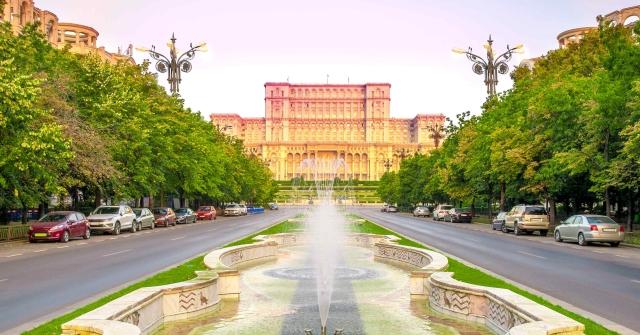According to the World Bank, Romania had the fastest growing economy in the European Union in the first half of 2017 with a 5.8% GDP. The World Bank attributes the growth to growing private consumption, which was partially generated by lowered standard value added tax (VAT) rates from 24% to 20% in January 2016. Additionally, Romanian wages increased both in public and private sectors by 13.5% since 2016 — and Romania is poised to continue its growth.
This generally positive economic outlook and a mostly underdeveloped economy makes expanding in Romania a likely place to find success. Here are four tips to help do just that.
Expanding in Romania’s Untapped Markets
Though Romania’s market has seen its share of ups and downs over the last decade, its economic outlook is bright; the Bucharest Stock Exchange (BVB) recently boasted strong growth in both listings and trade volumes. In fact, BVB recently saw the fastest growth among EU capital markets. This is an attractive prospect for foreign investors who are looking to conduct business in Romania in the long term. And this sentiment is echoed by the President of the Netherlands Romanian Chamber of Commerce who, in a recent interview with a Romanian journal, noted that Romania holds much untapped economic potential. He went on to highlight that Romania’s skilled, English-speaking labor force and geographic positioning should be an alluring prospect for foreign investors.
Be Prepared for Red Tape
The World Bank ranks Romania 45th against 190 other countries in distance to frontier, meaning that it is the 45th easiest to get a business going and running among the 190 countries. That ranking, however, hides some of the particular areas in which Romania bogs down starting a business. Romania ranks 150th in dealing with construction permits, and the World Bank estimates that a business would go through 24 interactions with external agencies to get a permit over a period of 260 days.
This bureaucratic mess can slow down any expansion into Romania. When drawing up expansion plans, make sure they have room for these kinds of delays. Nothing sinks a business plan like an unexpected delay of almost a year. Consider working with a good lawyer and accountant who know how to get things done to help speed the process along.
Capitalize on Romania’s Systemic Strengths
This red tape, however, is balanced by several excellent rankings. The World Bank ranks Romania first in trading across borders, 17th in enforcing contracts, and 20th in getting credit. Access to the European Union’s single market makes trading with other countries throughout the EU extremely easy. While it may be difficult to start a business in Romania, it has a great system for doing business.
Understand Romania’s Business Culture
One of the most important aspects of doing business in any new country is the business culture. According to the Ministry of Foreign Affairs in Denmark, Romania has a very formal, hierarchical business culture. This top-down model of business means that lower level employees rarely question decisions made by executives, and there is a great deal of respect for those in authority. This culture defines how business meetings work. There is very little small talk, and the meetings are dominated by the most senior executive in the room; only the most senior executives will be empowered to make decisions.
Be careful with negotiations; Romanians have a difficult history of foreigners taking advantage of their country, so they will get very prickly if they sense ill intent.
Understand Romania’s Social Culture
The social culture is formal, too. A standard greeting involves a firm handshake and eye contact. Titles are important, and addressing people by the local equivalent of “Mr.” or “Mrs.” or an academic title is expected. They emphasize good manners and social etiquette. Romanians also prefer to work with people who are “down to Earth.” They do not like it when individuals brag about their accomplishments.
These social rules are important, because much of Romania’s business culture is driven by relationships, including their bureaucracy. Navigating these social mores may assist in developing a good relationship with a government official to help speed along interactions with Romania’s government.
Getting Started in Romania
Expanding into Romania doesn’t have to be complicated. Businesses can rely on a third-party expert that has infrastructure in the region and the support organizations need to get businesses up and running fast. Learn about all the benefits of International PEO (Professional Employer Organization) and contact us to see how we can help your unique needs and get your business up and running in Romania.
Topic:
Global Growth



